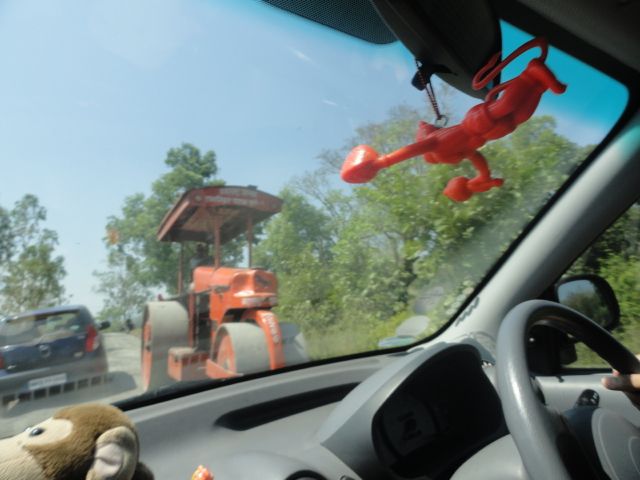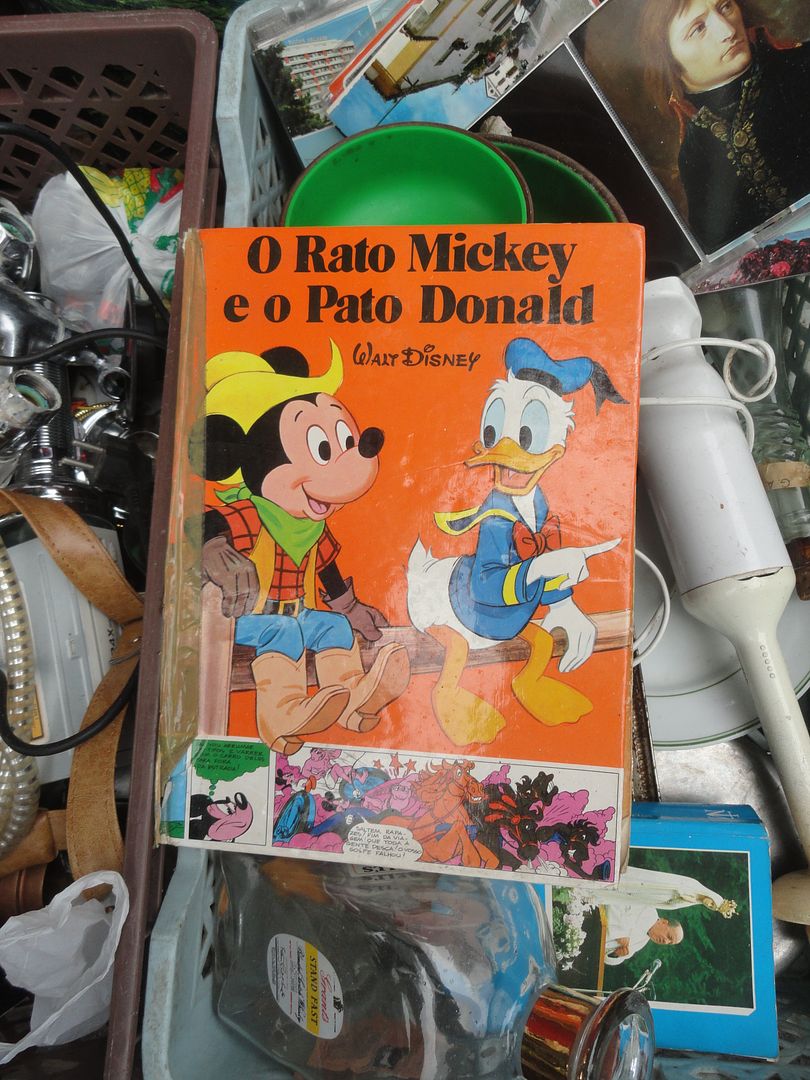ALS Ice-Bucket Challenge business (spoiler: I stay dry)
Kirby's full video is on his facebook page. https://www.facebook.com/video.php?v=10154553642215486
Donate money here: http://alsa.org
Thursday, August 28, 2014
Tuesday, August 26, 2014
Books I'm built of
On facebook, a thing was going around, and I wrote what's below. I'm saving it because sometimes people ask me what books I've read, meaning probably which books made me the way I am as an unschooling advocate, but I don't have a list like that for them.
I used to have a list of books I recommended, years ago. (bottom of this page: Follow-up to HSC Home=Schooling Conference 2001) There are books I recommend now, but they're not at the core of me. They might be at the core of some people who read them now, in an impressionable stage; that would be good!
I used to have a list of books I recommended, years ago. (bottom of this page: Follow-up to HSC Home=Schooling Conference 2001) There are books I recommend now, but they're not at the core of me. They might be at the core of some people who read them now, in an impressionable stage; that would be good!
Instructions: in your status, list 10 books that have stayed with you in some way. Don't think too hard. They don't have to be the "right" books or great works of literature, but they should be ones that have affected you in some way. Tag 10 friends including the one who tagged you so they can see your list.
1. Whole Child, Whole Parent (Berrien Berends)
2. Conceptual Blockbusting (Adams)
3. Slapstick (Vonnegutt)
4. Zen Lessons, The Art of Leadership (Cleary, translator)
5. Slowing Down to the Speed of Life (Carlson)
6. The Monastic World (Brooke/Swaan)
7. Learning All the Time (Holt)
8. Man and his Symbols (Jung)
9. The American Heritage Dictionary (editions with the wonderful etymologies since 1969; not all have the etymologies)
10. Material World (Menzel)
No one tagged me, so I'm not tagging. It's just going to sit here. :-)
A couple of recent books I keep referring to and thinking of won't have as many years to affect me as the books above have had, but they're affecting me this year:
Smarter Than you Think (Thompson), about people, computers and the internet
Bad For You: Exposing the War on Fun (Pyle, Cunningham)
(I'll tag people who have already played, whose lists I read: Pam Sorooshian, Rose Sorooshian, Roxana Sorooshian)
I was thinking about what my list would have been when I was in my early-to-mid 20's. The only two above would have been Slapstick and The American Heritage Dictonary.
Probably then, those didn't have the roots in me that they have now.
I think my list when I was 23 or so would have been:
Oliver Twist
The Bible
The Sneetches and Other Stories (still important ideas)
The Lord of the Rings
Life on a Medieval Barony
The English and Scottish Popular Ballads (Child)
The Ballad Book of John Jacob Niles
The Annotated Mother Goose (Baring-Gould(s))
Joan Baez Ballad Book
Be Here Now (Ram Dass)
But the books I didn't list above that are important in my life are reference books, not read-start-to-finish books (The Oxford English Dictionary; Brewer's Dictionary of Phrase and Fable), and collections (The Children's Hour, which I've had since before I was in school; Grimm's Fairy Tales; Chaucer; Shakespeare; Poe; various Robin Hoods, and various King Arthurs and the art in them). I liked the Science Fiction magazines on newsprint in the 60's, and LOOK magazine, and MAD magazine. I liked Childcraft books (which friends had, I didn't) and the series on sewing and needlework that someone was putting out in hardback in the 1970's (which I saw and borrowed but didn't own).
Wednesday, August 20, 2014
Who speaks what and why, these days?
I've seen how they've learned, or honed their second and third languages. Some of the adults studied in school, but unless they had a chance to use the language with native speakers, it's not very real, it seems. I studied French in school, and can read a fair amount, but I can't understand native speakers. They have no consonants. It's like a quick song of all unfamiliar vowels and sounds I can't make well.
So I'm thinking… In India there are lots of languages, in the street, in movies, on TV, families have servants who speak the local (state) language, and older relatives might not have as much English as their college-educated offspring have. Hindi and English are known by many. For people who live outside the north central part of the country, they also speak (or understand) one or more of Tamil, Bengali, Marati, Telugu, Gujarati Kannada, Malayalam or Punjabi. Google offers sites in all those languages: https://www.google.co.in
There are a billion people in India. There are 46 cities there with over a million inhabitants.
A smaller city is Rampur. Rampur is in Uttar Pradesh. People there speak Bangla, Hindi, English and other languages, in various combinations. The population was last recorded as 325,000 and some. There are 133 cities in India that are larger than Rampur.
Far away in Iceland, a nation whose borders are as distinct as can be, has a native language which came from Old Norse, so it's 1,000 years old. The entire country has about 325,000 people.
In Texas there's a city named Corpus Christi, on the Gulf of Mexico halfway across the Texas coast. The population is a little over 316,000 people. There are seven cities larger, in Texas.
But closer to the population size of Iceland, and in closer proximity to Canada, is St. Louis, Missouri with 318,416 people.
If someone begins to drive in St. Louis, headed to Mexico, he could get there in 16 hours—1063 miles to Laredo, Texas on excellent interstate highways—to cross over into Nuevo Laredo, in Tamaulipas (where they don't speak Tamil, even though it sounds as though they should).
But say this guy from St. Louis doesn't want to go to Mexico. That border area isn't the good part of Mexico—not the pretty part, nor the (relatively) safe part. So St. Louis people could go somewhere eles. He is (by some of the best roads in the world) 2,050 miles from San Francisco on the Pacific, and barely over 800 miles to Washington DC, on the Atlantic.
Any direction north, he can drive until he hits the Arctic Ocean, and there will be English speakers (even in Quebec). Well maybe he can't drive there. Google says it's 3200 miles to Barrow, Alaska and offered to hook me up with an $825 flight (from St. Louis, a helluva long way from me), but driving directions… even Google maps didn't figure anyone ought to drive to Barrow, Alaska.
Portugal. Portugal has a language and a long and interesting history. And as many people as London has.
There are ten countries in the EU with a greater population than Portugal's. Leaving Portugal and driving on an imaginary US Interstate highway 2000 miles, one would drive through eight or ten countries and maybe more languages. And St. Louis is fairly central, in the U.S. Closer to the East coast. I tried overlaying the US on Europe with Los Angeles on top of Lisbon. It went too far to make sense here.
Canada and the US make a huge area for English speakers to travel and visit in, and it's a long expensive way to get to places where other languages are native, besides Mexico and Quebec. If different provinces and states has as many different languages—60 or so on the mainland—north Americans would probably speak a several languages, too.
I would prefer that people not belittle me for only speaking English. The world has always been rearranging, and someday other langauges will be spoken in lots of places. The US will fail someday as Rome fell and as England's empire shrivelled. But now, in my lifetime, English is nothing to be ashamed of.
My friends in other countries have been sweet and generous in letting me visit even though I wasn't able to communicate in French, Dutch, or Portuguese. The willingness of Brits and Australians to repeat or rephrase is appreciated. I'm glad I was allowed to trade ideas, stories and writing for that hospitality. Thank you.
Here's something about English in Iceland: Bilingualism: Why Not?, by ZR – zoe_robert3@hotmail.com
Subscribe to:
Posts (Atom)



